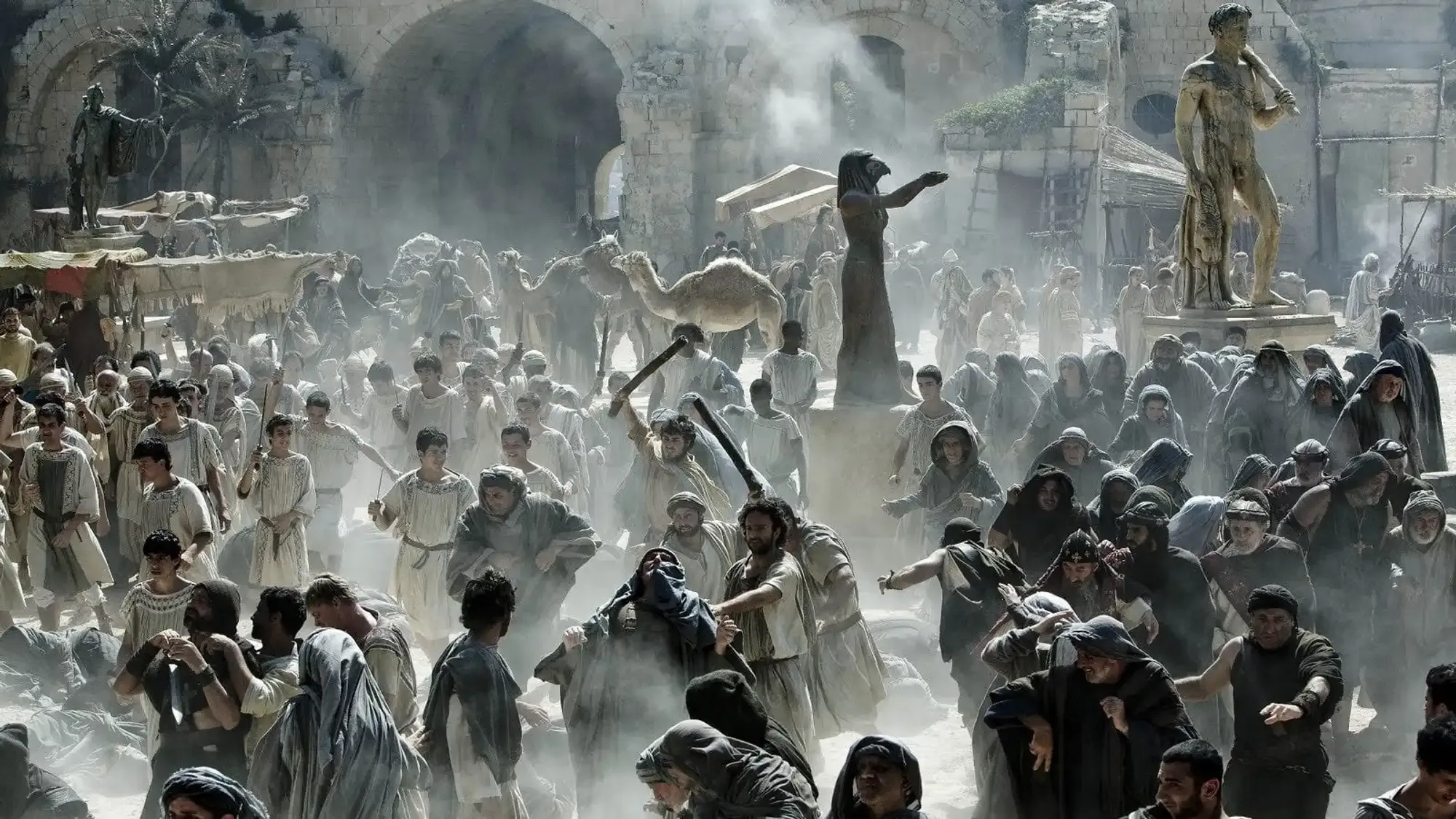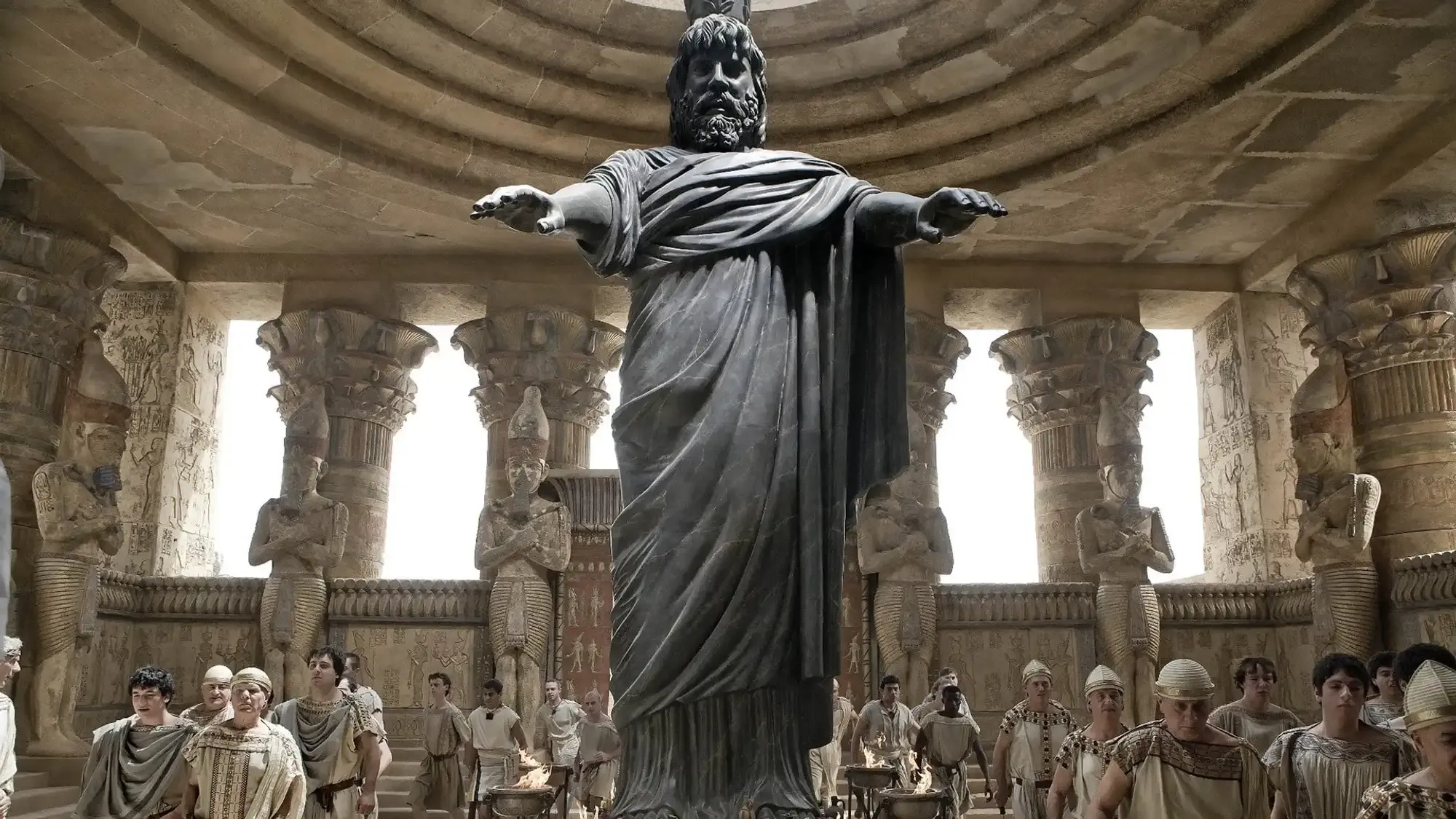"Agora: A Thought-Provoking Epic"
Posted Wednesday, Jan 03, 2024 189
Agora takes us back to the ancient city of Alexandria in the 4th century, where the brilliant astronomer Hypatia finds herself entangled in the religious and political turmoil of the time. As the Roman Empire crumbles and Christianity rises to power, Hypatia`s pursuit of knowledge and her progressive beliefs clash with the prevailing dogmas, leading to a dramatic and breathtaking climax.
The film explores themes of power, faith, and knowledge, portraying the clash between reason and superstition with striking clarity. The tone is often somber, highlighting the struggles faced by those who dare to challenge the status quo, yet there are moments of hope and beauty that shine through the darkness.
Rachel Weisz`s portrayal of Hypatia is nothing short of mesmerizing. She brings depth and humanity to a character who is both fiercely intelligent and achingly vulnerable. The supporting cast, including Max Minghella and Oscar Isaac, deliver powerful performances that breathe life into the historical figures they portray.
Director Alejandro Amenábar has masterfully crafted a captivating and thought-provoking narrative. His attention to period detail and his ability to create a palpable sense of time and place are evident throughout the film, drawing the audience into the ancient world of Alexandria.

The score by Dario Marianelli is haunting and evocative, perfectly complementing the film`s emotional depth and adding an extra layer of richness to the storytelling.
The cinematography in Agora is nothing short of breathtaking. From sweeping shots of the ancient city to intimate moments of character reflection, the visuals are both stunning and emotionally resonant, capturing the grandeur and intimacy of the story.
The production design is meticulously researched and executed, bringing the ancient world of Alexandria to vivid life. The sets and costumes are rich with detail and authenticity, immersing the audience in a visually stunning recreation of history.
While Agora does not rely heavily on special effects, the few instances where they are utilized are seamlessly integrated into the narrative, enhancing the authenticity of the ancient setting without overshadowing the human drama at the heart of the story.

The editing in Agora is skillfully done, seamlessly weaving together multiple storylines and timelines to create a cohesive and engaging narrative. The pacing is deliberate, allowing for moments of contemplation and introspection without sacrificing the overall momentum of the film.
The film`s pace may be considered slow for some viewers, as it prioritizes character development and philosophical exploration over action-packed sequences. However, this deliberate pacing allows for a deeper immersion into the themes and emotions of the story.
The dialogue in Agora is poignant and thought-provoking, capturing the intellectual and emotional conflicts of the characters while also shedding light on the broader philosophical debates of the time. The exchanges are both intellectually stimulating and emotionally resonant, adding depth to the narrative.
While Agora excels in many aspects, some viewers may find the religious and political themes to be heavy-handed at times. Additionally, the deliberate pacing may not appeal to those seeking a more fast-paced or action-driven historical epic. However, for those willing to engage with its intellectual and emotional depth, Agora offers a deeply rewarding cinematic experience.
Agora is a breathtaking and thought-provoking epic that transports viewers to a pivotal moment in history, grappling with timeless themes and stirring performances. It is a film that lingers in the mind long after the credits roll, offering a profound and resonant exploration of the human spirit in the face of intellectual and political upheaval.